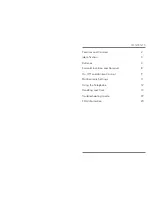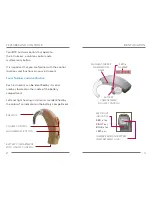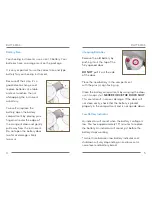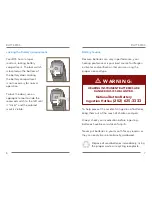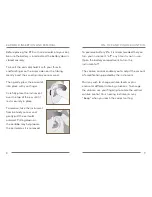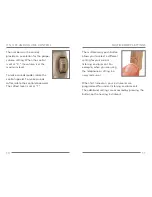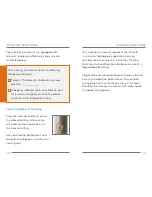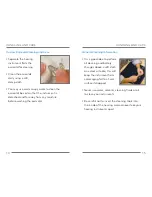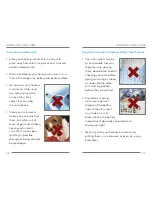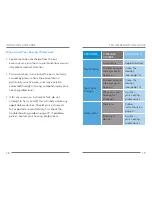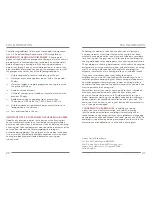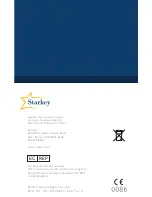
20
21
fda infOrMatiOn
The following additional information is provided in compliance
with U .S . Food and Drug Administration (FDA) regulations:
warning tO hearing aid dispensers.
A hearing aid
dispenser should advise a prospective hearing aid user to consult
promptly with a licensed physician (preferably an ear specialist)
before dispensing a hearing aid if the hearing aid dispenser
determines through inquiry, actual observation, or review of any
other available information concerning the prospective user, that
the prospective user has any of the following conditions:
i .
Visible congenital or traumatic deformity of the ear .
ii .
History of active drainage from the ear within the previous
90 days .
iii . History of sudden or rapidly progressive hearing loss within
the previous 90 days .
iv . Acute or chronic dizziness .
v .
Unilateral hearing loss of sudden or recent onset within the
previous 90 days .
vi . Audiometric air-bone gap equal to or greater than
15 decibels at 500 Hertz (Hz), 1,000 Hz and 2,000 Hz .
vii . Visible evidence of significant cerumen accumulation or a
foreign body in the ear canal .
viii . Pain or discomfort in the ear .
iMpOrtant nOtiCe fOr prOspeCtiVe hearing aid users.
Good health practice requires that a person with a hearing loss
have a medical evaluation by a licensed physician (preferably a
physician who specializes in diseases of the ear) before purchasing
a hearing aid . Licensed physicians who specialize in diseases of the
ear are often referred to as otolaryngologists, otologists,
or otorhinolaryngologists . The purpose of the medical evaluation
is to assure that all medically treatable conditions that may affect
hearing are identified and treated before the hearing aid
is purchased .
fda infOrMatiOn
Following the medical evaluation, the physician will give you
a written statement that states that your hearing loss has been
medically evaluated and that you may be considered a candidate
for a hearing aid . The physician will refer you to an audiologist or
hearing aid dispenser, as appropriate, for a hearing aid evaluation .
The audiologist or hearing aid dispenser will conduct a hearing aid
evaluation to assess your ability to hear with and without a hearing
aid . The hearing aid evaluation will enable the audiologist or
dispenser to select and fit a hearing aid to your individual needs .
If you have reservations about your ability to adapt to
amplification, you should inquire about the availability of a trial-
rental or purchase-option program . Many hearing aid dispensers
now offer programs that permit you to wear a hearing aid for a
period of time for a nominal fee after which you may decide if you
want to purchase the hearing aid .
Federal law restricts the sale of hearing aids to those individuals
who have obtained a medical evaluation from a licensed
physician . Federal law permits a fully informed adult to sign a
waiver statement declining the medical evaluation for religious or
personal beliefs that preclude consultation with a physician . The
exercise of such a waiver is not in your best health interest and its
use is strongly discouraged .
Children with hearing lOss.
In addition to seeing
a physician for a medical evaluation, a child with a hearing
loss should be directed to an audiologist for evaluation and
rehabilitation since hearing loss may cause problems in language
development and the educational and social growth of a child . An
audiologist is qualified by training and experience to assist in the
evaluation and rehabilitation of a child with a hearing loss .
Starkey World Headquarters
P .O . Box 9457, Minneapolis, MN 55440
Wm . F . Austin House, Bramhall Technology Park
Pepper Road, Hazel Grove, Stockport SK7 5BX
United Kingdom


